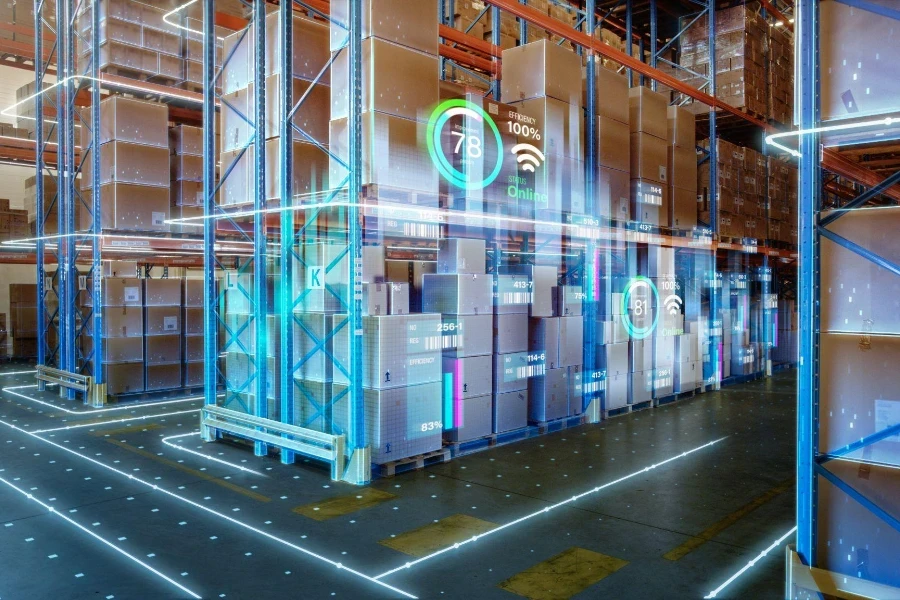In an ever-evolving market landscape, the role of a wholesaler remains crucial yet often misunderstood. Wholesalers act as the vital link between manufacturers and retailers, ensuring that the shelves are always stocked with the products consumers love and need. This article aims to demystify the wholesaler’s role, exploring the intricacies of their operations and the benefits they bring to the supply chain. By breaking down complex concepts into digestible explanations, we invite you to explore the world of wholesalers with us.
Table of Contents:
– Understanding the wholesaler’s role
– The benefits of working with wholesalers
– Challenges faced by wholesalers
– How technology is reshaping wholesaling
– The future of wholesaling
Understanding the wholesaler’s role

Wholesalers serve as an essential cog in the supply chain, purchasing goods in bulk from manufacturers before selling them to retailers or sometimes directly to consumers. This process allows for economies of scale, benefiting all parties involved. Wholesalers typically operate from warehouses where goods are stored until they are sold. By doing so, they reduce the burden on manufacturers and retailers, who may not have the space or resources to store large quantities of products.
The relationship between a wholesaler and a manufacturer is symbiotic. Manufacturers rely on wholesalers to distribute their products far and wide, reaching markets they might not be able to on their own. This distribution network is particularly crucial for small to medium-sized enterprises (SMEs) that may not have the infrastructure for wide-scale distribution.
Retailers, on the other hand, depend on wholesalers for a steady supply of products. By purchasing from wholesalers, retailers can stock a diverse range of items without the need to order massive quantities from each manufacturer. This flexibility allows retailers to offer a wide selection of products to their customers, catering to a variety of tastes and needs.
The benefits of working with wholesalers

One of the primary benefits of working with wholesalers is cost savings. Due to their large-scale operations, wholesalers can purchase goods at a lower price, passing on some of these savings to retailers. This arrangement allows retailers to remain competitive in pricing, which is especially crucial in markets with thin margins.
Another significant advantage is the reduction in logistical complexities. Wholesalers handle the storage, transportation, and sometimes even the marketing of products. For retailers, this means less time and resources spent on logistics and more focus on sales and customer service. Wholesalers often have established distribution networks, making it easier to introduce new products to the market.
Furthermore, wholesalers possess a deep understanding of the market. They are in a unique position to advise retailers on product trends, inventory management, and consumer preferences. This insight can be invaluable for retailers looking to optimize their product offerings and marketing strategies.
Challenges faced by wholesalers

Despite their critical role, wholesalers face several challenges. The rise of direct-to-consumer (DTC) sales channels has bypassed the traditional wholesaler model, putting pressure on wholesalers to demonstrate their value. Wholesalers must adapt by offering additional services or focusing on niche markets where their expertise and relationships can provide a competitive edge.
Another challenge is managing inventory in a volatile market. Wholesalers must strike a delicate balance between having enough stock to meet demand and avoiding overstocking, which can lead to financial losses. This requires sophisticated forecasting and inventory management techniques.
Lastly, wholesalers must navigate the complexities of international trade when sourcing or selling products abroad. This includes understanding and complying with various regulations, taxes, and customs procedures, which can be daunting and time-consuming.
How technology is reshaping wholesaling

Technology plays a pivotal role in modernizing the wholesaling sector. Advanced inventory management systems enable wholesalers to track stock levels in real-time, improving efficiency and reducing the risk of overstocking. E-commerce platforms allow wholesalers to reach new markets and sell directly to smaller retailers or even consumers.
Furthermore, data analytics tools offer wholesalers insights into market trends, consumer behavior, and operational performance. This data-driven approach enables wholesalers to make informed decisions, tailor their offerings, and anticipate market changes.
Blockchain technology also promises to transform the wholesaling sector by enhancing transparency and security in the supply chain. It can help in verifying the authenticity of products, tracking their journey from manufacturer to retailer, and ensuring the integrity of transactions.
The future of wholesaling

The future of wholesaling is poised for transformation, driven by technological advancements and changing market dynamics. Wholesalers who embrace innovation, adapt to market needs, and focus on adding value beyond mere distribution will thrive. The rise of sustainable and ethical sourcing practices also presents an opportunity for wholesalers to differentiate themselves and cater to the growing demand for responsible products.
As the market continues to evolve, the role of the wholesaler will undoubtedly change, but their importance in the supply chain will remain. By leveraging technology, fostering strong relationships, and staying attuned to market trends, wholesalers can continue to play a pivotal role in connecting manufacturers with consumers.
Conclusion
The world of wholesaling is complex and multifaceted, playing a critical role in the global economy. By understanding the challenges and opportunities within this sector, wholesalers can navigate the changing landscape and continue to thrive. As technology reshapes the industry, the future of wholesaling looks promising, offering new ways to add value and connect the world through commerce.




